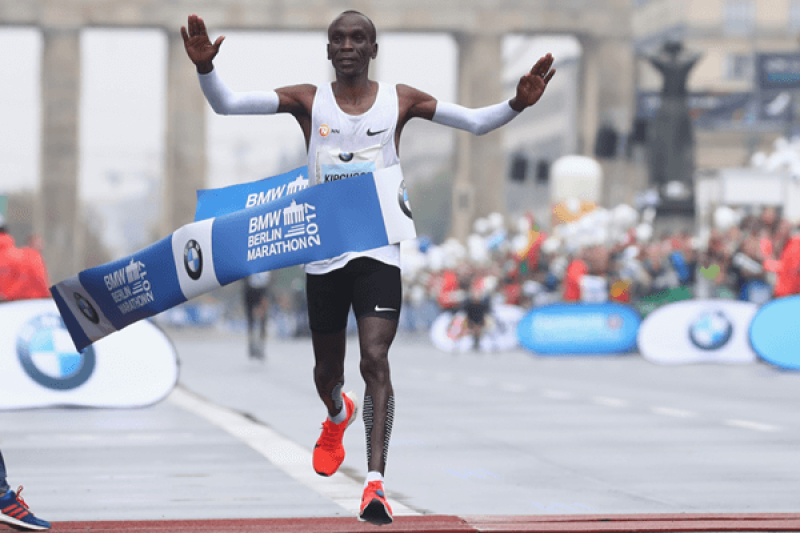When Eliud Kipchoge broke the tape at the Berlin Marathon [in September]—setting a new world record by 78 seconds—he and his fellow marathoners may have had evolution to thank. Or, more specifically, the CMAH gene.
In 1998, Ajit Varki, a biologist at the University of California San Diego (UCSD), helped identify a small variation in humans’ CMAH gene compared to that of chimpanzees. The landmark study was the first to find a genetic difference between us and our closest relatives. While CMAH is present in every member of both species, it remains intact in primates (among many other animals), whereas humans are thought to have lost part of the gene between 2 million and 3 million years ago, rendering it effectively inactive.
Varki and other scientists spent the next two decades studying that ancient tweak to CMAH, linking it to an increased risk of ailments such as muscular dystrophy and heart disease. Now, new research published [September 12] in the journal Proceedings of the Royal Society B added another surprising effect to that list: The gene may have also made humans better long-distance runners. “Ironically,” Varki explained, “the same mutation that increases the risk of these diseases gives us the ability to run.”
Read full, original post: Did a Gene Mutation Help Humans Become Super Runners?































